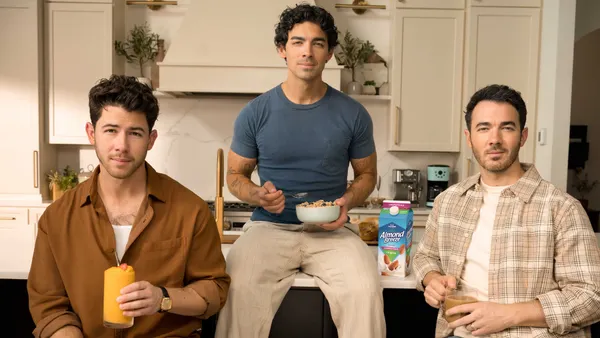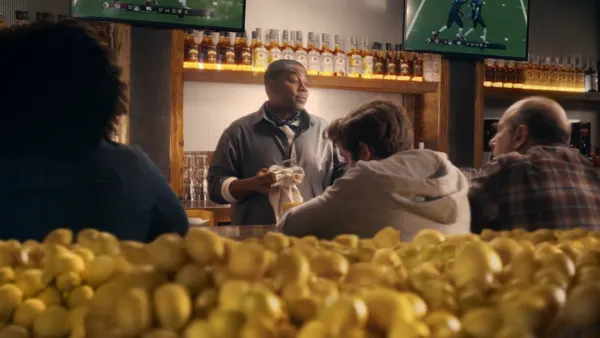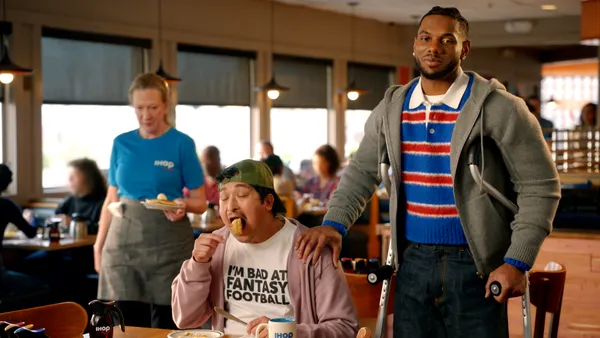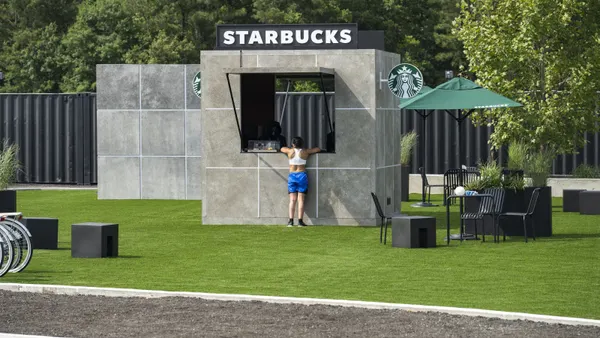Dive Brief:
- Coca-Cola's marketing strategy for the 2016 Olympics specifically targeted teenagers and mothers, according to a paper published in the International Journal of Environmental Research and Public Health this week. The National Health and Nutrition Examination Survey found 18.5% of children ages 2 to 19 were obese in 2015 and 2016.
- The report, produced by Deakin University and nonprofit public health group U.S. Right to Know, also includes a request for proposals to run Coca-Cola's "Movement Is Happiness" marketing campaign in 2013 with the objective "to increase Coke brand health scores with teens" and "cement credibility in the health and well-being space."
- In an email to Food Dive, Coca-Cola said this communication predates the company's 2016 commitment to stop sponsoring programs that promoted physical activity. "At Coca-Cola, we recognize that too much sugar isn't good for anyone. That’s why, around the world, we are reducing the amount of sugar in our products and taking other steps to help people reduce their sugar intake," the company said.
Dive Insight:
Coca-Cola can't seem to escape its past. This new paper is at least the third report this year to reveal more details about how the soda giant's past marketing communications and spending focused on changing the perception around the healthiness of their beverages and promoting exercise. Despite Coke's more recent commitment to transparency, manipulation attempts from previous years could continue to haunt the company's future.
In January, a report published email exchanges between Coca-Cola employees and officials at the U.S. Centers for Disease Control and Prevention from 2011 to 2015. The emails show the company trying to influence the World Health Organization to push exercise as a solution to obesity instead of dietary changes. Then in May, a study by the University of Cambridge found evidence of Coca-Cola striking agreements with five public universities that gave the company the ability to review and "terminate without reason" health studies it funded.
This latest paper further spotlights Coke's efforts to heavily invest in changing its perception in the public despite the health risks. Coca-Cola proposed spending $1.5 million to $2.5 million for a public relations campaign for the 2016 Olympics in Rio de Janeiro specifically targeting teenagers. The RFP indicates the company wanted to promote a similar message in 2013 — when obesity was rising in the U.S.
"Globally, Coke makes public pledges to reduce the exposure of children to marketing of unhealthy products. But what they say in public is at odds with their internal documents that show how they deliberately set out to target children as part of their promotion efforts," Gary Sacks, an associate professor at Deakin University and co-author of the paper, said in a release.
But these accusations aren't new. Studies have found evidence that the food and beverage industry have marketed to change perceptions and pressured officials to influence regulations for years. As that has been uncovered, companies have made commitments to change.
Coke responded to this paper by highlighting its present day efforts for more transparency. The company said in 2017 and 2018, it eliminated 425,000 tons of sugar from its portfolio through innovations including new recipes, smaller packages and more low- and zero-sugar products. Coca-Cola also said it has long had a global policy of not marketing to children under 12.
These more recent efforts could help Coca-Cola since consumers are looking for better-for-you products and more transparency. The Transparency Imperative reported 93% of consumers want to know more information about the food they consume — a big jump from 39% in 2016.
Soda sales have slowed in recent years, while new taxes target the sugary drink market and reports continue to show that companies aren't doing enough to help consumers eat healthy. It's also becoming increasingly clear that too much sugar is not healthy for consumers. A September study published in JAMA found drinking at least two 8-ounce glasses of soda a day is linked to increased risk of death. Many companies, including Coke, have diversified portfolios as a result of consumer demand.
More recently, Coca-Cola has been promoting its image as a "total beverage company" with a variety of products, including water, juice, tea, coffee and sports drinks. The soda giant plans to continue to branch out, launching its new Coca-Cola Energy line in the U.S. in January and releasing a new sparkling water brand called Aha in March.
Coke seems to be pushing its marketing strategy to emphasize its portfolio outside of soda. The company just launched a subscription service for consumers to taste more than 20 new drinks before they launch to the public, including Aha and Coke Energy. If more of the company's marketing moves focus on its other beverages, then it could be a way to gain back consumer trust.
Just last week, Coke also said it would reinstate its global chief marketing officer role only two years after retiring it. A focus of the company's new CMO could be to figure out how to move past their previous decisions and push the company forward to meet new consumer demands.











